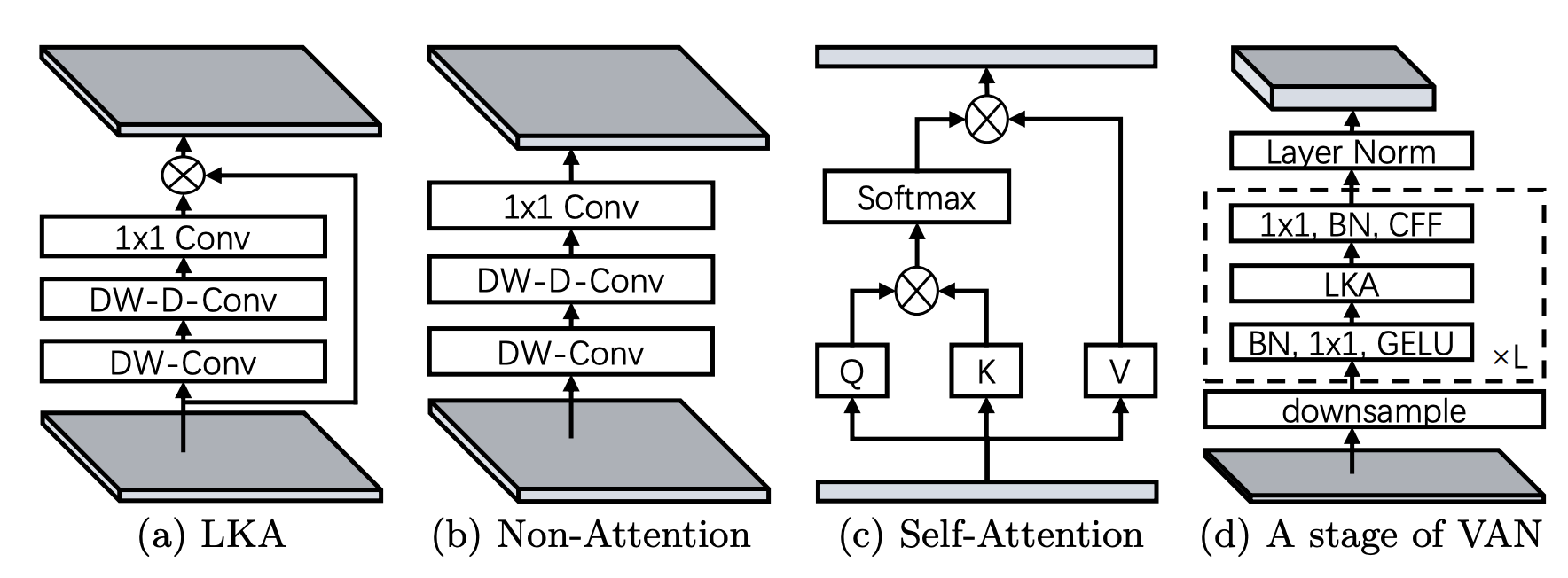Van
Van model trained on imagenet-1k. It was introduced in the paper Visual Attention Network and first released in this repository.
Disclaimer: The team releasing Van did not write a model card for this model so this model card has been written by the Hugging Face team.
Model description
This paper introduces a new attention layer based on convolution operations able to capture both local and distant relationships. This is done by combining normal and large kernel convolution layers. The latter uses a dilated convolution to capture distant correlations.
Intended uses & limitations
You can use the raw model for image classification. See the model hub to look for fine-tuned versions on a task that interests you.
How to use
Here is how to use this model:
>>> from transformers import AutoFeatureExtractor, VanForImageClassification
>>> import torch
>>> from datasets import load_dataset
>>> dataset = load_dataset("huggingface/cats-image")
>>> image = dataset["test"]["image"][0]
>>> feature_extractor = AutoFeatureExtractor.from_pretrained("Visual-Attention-Network/van-base")
>>> model = VanForImageClassification.from_pretrained("Visual-Attention-Network/van-base")
>>> inputs = feature_extractor(image, return_tensors="pt")
>>> with torch.no_grad():
... logits = model(**inputs).logits
>>> # model predicts one of the 1000 ImageNet classes
>>> predicted_label = logits.argmax(-1).item()
>>> print(model.config.id2label[predicted_label])
tabby, tabby cat
For more code examples, we refer to the documentation.
- Downloads last month
- 1,415
